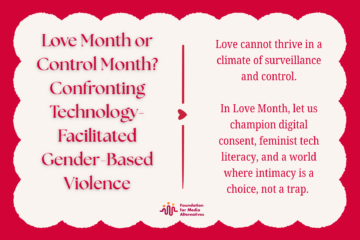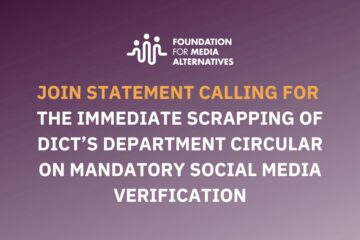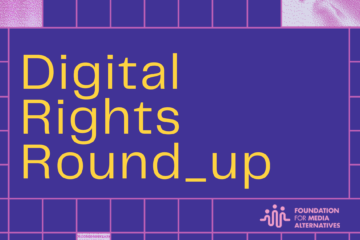Imagine A World Like That: Employing Positive Parenting Attitudes to LGBTQIA+ Individuals
Being a predominantly religious country, the Philippines still has a long way to go before it can truly claim to be a gay-friendly country. Many Filipinos continue to believe that queers are either a sin or a sickness that requires assistance in transforming themselves to heterosexuality. Parents are one of the key agents of various forms of violence to realign their queer children with society’s heteronormative standards. With rampant LGBTQIA+ discrimination complemented with a lack of absent protective policies against gender discrimination, queers are constantly forced to adopt a more heteronormative-conforming identity in order to prevent dehumanizing criticisms from the society, especially from their parents. (READ: Chained By Misery in their Sanctuary: The Poor Treatment of the LGBTQIA+ Individuals in the Household)
Despite this ugly reality, some people are fortunate to have parents who do not subscribe to homophobic ideologies. These people are actually a saving grace because most LGBTQIA+ individuals have been exposed to so much hatred from the world that they believe they are worthless. Regardless of whether parents reinforce gender discrimination ideologies or not, queers struggle to be more confident and compassionate among themselves as a result of chronic societal persecution. As a result, it is critical that parents serve as their children’s primary support system, rather than adding to their mental health destabilization
Parental Acceptance Against Societal Discrimination
Imagine your queer child returning home from school, where he has been teased badly because of their gender identity. Every action they make, every word that they say, is mocked, leaving your child feeling isolated at school. Before they return home from school, street kids will ambush and insult them, repeatedly shouting the words “bakla” and “bading” accompanied by boisterous laughter. With those experiences, what could you do to make them feel and believe that they are still human? What actions should you avoid that will make them feel less human?
The earlier scenario depicts a typical teenage queer life. Some have it worse, but this is the typical experience. Parents should be more welcoming and loving of them not just because they need and require it, but because it does not make them a bad person. Other than that, they should foster such values because they are parents. It is not appropriate for a parent to join the majority in persecuting their queer child just because they are embracing their identity. Rather, they should protect them from the harms that the world will bring upon them. The hatred individuals experience from society is as if they murdered someone or stole something when in reality, society restricts their freedom and kills their spirit. What happens if you are a more welcoming parent to your queer child?
Continue supposing that your queer child just went home from the discriminating world you reside in. You realize that a homophobic household should be the least of their worries because it will just be an added burden for them. You help them process whatever emotion that they are feeling, may it be anger, confusion, or even depression. This helps in keeping negative thoughts expressed, avoiding the instance of it bottling up until it becomes too much to bear. You end it with a reassurance that whatever the world thinks of them, the home will be their safe space and you will be the major source of love and acceptance. There is so much to be done for a parent to ensure the well-being of their queer child. It shall be noted that it starts with understanding and genuine acceptance complemented with open-minded conversations. How do these simple acts affect them?
Presto (2020) discussed that it becomes easier for the LGBTQIA+ kids to become compassionate toward themselves, resolving any type of confusion or internalized homophobia that grew from society’s influence. Moreover, they feel more liberated amid the many limitations that the community are persistently imposing on them since their identity is validated by their parents (Ferrer et. al., 2021). To elevate this discussion, those who are not out of the closet are more vulnerable to mental health issues since they hide a big part of who they are, which is done through isolation at the maximum. With that, positive parenting should be applied to your children whether you speculate that they are part of the queer community or not. This is to earn the trust and give them the cue that the household they reside in is not a judgmental one.
Tolerance Hiding in the Cloak of Acceptance
If you truly accept your queer child, you can imagine them subscribing to the following narrative. Your queer child might resort to cross-dressing because they feel more comfortable and confident with clothes that are not culturally aligned with their sex. Your queer child will be showing certain movements that are not in accordance to heteronormative standards. There will also come a time that your queer child will enter a same-sex relationship, as it is their right to love the people who they have strong feelings with. You may even witness your child making medically-guided efforts to change their body that they believe fits their identity. Your girls may want to grow a mustache and deepen their voice while your boys may want to make their hair longer, grow their boobs, and lighten their voice.
As a parent of a queer child, it is essential to start imagining these possibilities to assess if your acceptance is genuine or it is just tolerance in disguise. Presto (2020) found out that parents find it easier to accept their LGBTQIA+ children if they appear less queer. Such statements are actually contradictory because the moment you impose parameters to earn your acceptance, it is a sign that you do not accept them at the moment. It is understandable that change may be overwhelming for many. However, how people react to change makes a big difference. Rather than throwing an outburst, present a more understanding demeanor, which gives an impression that you have the heart to understand their reasons. At the end of the day, you should grant your kids their right to freedom because the more you restrain them, the more they will distance themselves from you (Pinaga, 2023).
What About Faith? Do They Shut God Out?
Based on the framing of religion presented in the first part of the series and how it contributes to gender discrimination, it is easy to suppose that the queer community disassociated from the church. It is true that some LGBTQIA+ turns away from God because of the prejudiced environment in church that they experience, but there are those that resorted separating their belief in God and their feelings toward the church (Libiran et. al., 2024). Religious LGBTQIA+ individuals hold on to the belief that discrimination is caused by prejudiced church authorities. Furthermore, the maintenance of their faith stems from the idea that God is an icon of love, which the religious communities are having a hard time to actualize. As a matter of fact, the queers who face so much discrimination in the household and in society hold on to God for strength because it is only from Him that they experience the love and acceptance they crave for. To the LGBTQIA+ who were not able to maintain their faith, their decisions are valid since it is indeed a hard undertaking maintaining a relationship with a God known for love when its followers translate this into a more hateful manner.
BIONOTE: Ronald Marion Angelo Aranas Obillo was born on September 23, 2002, in Guiuan, Eastern Samar. He completed his junior high school education at St. Mary’s Academy of Guiuan and his senior high school education at Far Eastern University High School. Currently, he is pursuing a Bachelor of Arts in Political Science at the University of the Philippines Tacloban College. Committed to advancing socio-civic initiatives that empower various community groups, he is an active member of UP Halcyon, where he has served as the Public Relations Officer and as the project head for the notable Citywide Youth Leadership Training. Driven by a passion for public speaking, Mr. Obillo is also a member of the UP Tacloban Debate Society, one of the most prestigious debate societies in Eastern Visayas. He has represented UP Tacloban in various debate competitions, winning awards such as being the overall best speaker of Cebu Inter-school Debating Association: Novice Cup 2023 and the grand champion of the Visayas Novice Debate Cup. As an advocate for LGBTQIA+ rights, he firmly believes that individuals should be recognized and respected despite their sexual orientation and gender identity.



0 Comments